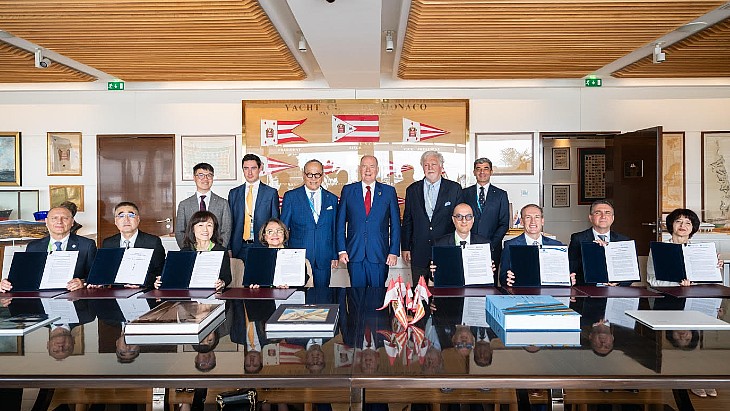Two Alpha-E fusion devices, in Taiwan and California, were remotely operated from the event in Monaco. The company says this demonstrated how "researchers and students worldwide will be able to conduct live fusion experiments via a secure, cloud-based infrastructure, eliminating traditional barriers of geography, regulation, and cost".
The devices provided under the MoU will all be connected to the company's Fusion AI Data Center "creating a distributed, collaborative network for experimental fusion research. It will enable students a hands-on platform to undertake and witness real life fusion, bringing this opportunity out of the lab and into educational establishments worldwide".
Peter Liu, Alpha Ring CEO, said: "Through global collaboration, investment in talent, and commercially investable technology, we can chart a path to limitless clean energy."
Prince Albert II of Monaco, whose foundation co-organised the forum with Alpha Ring, said: "It is essential to do everything in our power to accelerate its development, to expand the scientific capabilities, mobilise minds - not only those of engineers but also of industry leaders and public authorities."
The organisations with representatives signing the MoU were: Macau University of Science and Technology; National Cheng Kung University, Taiwan; Brazil's Nuclear Energy Research Institute (IPEN); Purdue University, USA; Ricerca sul Sistema Energetico, RSE SpA, Italy; University of California, Berkeley, USA; University of Montenegro and the UK's University of Oxford.
Alpha Ring, which is headquartered in California, with labs in both the USA and Taiwan, says its Alpha-E, previously called the ION Beam System, "will revolutionise how the next generation will learn about nuclear fusion". It stresses that the Alpha-E is not designed for energy production, but is a means to study the science of nuclear fusion and "is capable of producing all relevant fusion reactions, such as Deuterium-Deuterium, Deuterium-Tritium, and proton-Boron".





_13505.jpg)
_87975.jpg)
_67826.jpg)
_87695.jpg)





